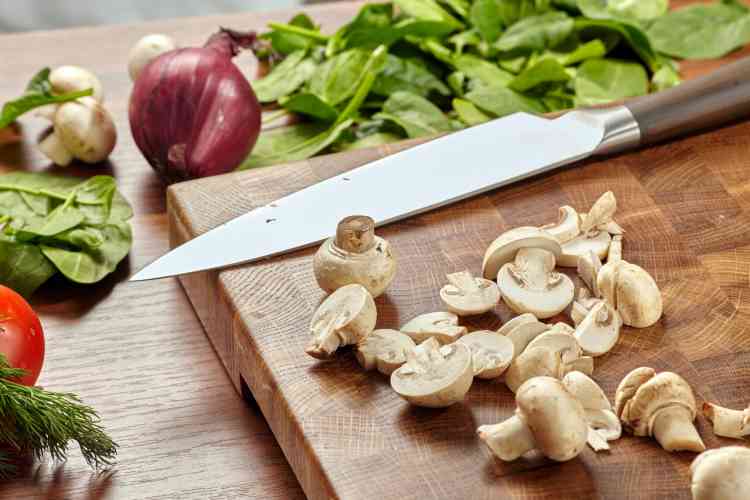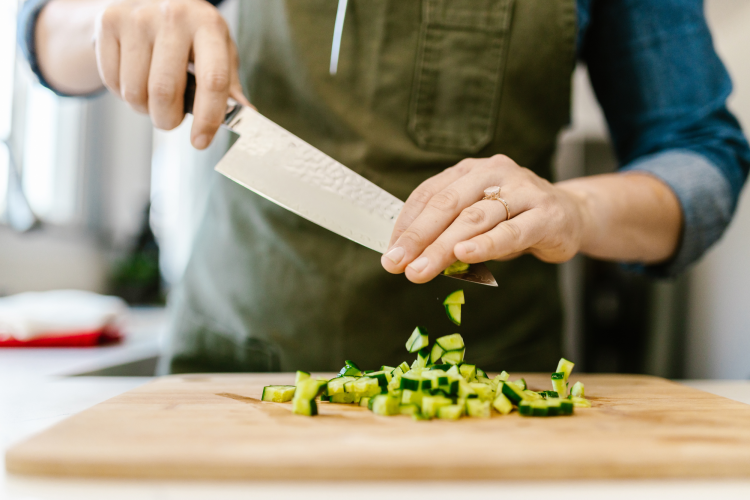When it comes to culinary excellence, every kitchen professional knows the importance of using the right tools. Among these, German knives are renowned for their precision, durability, and superior craftsmanship. However, to maintain their sharpness and integrity, it is crucial to use the best cutting board for German knives. Choosing the right cutting board can significantly extend the life of your knives and enhance your cooking experience.
In this comprehensive guide, we will delve into the essential factors that make a cutting board suitable for German knives. We will explore different materials, maintenance tips, and expert recommendations to ensure you make an informed decision.

Why German Knives Require Special Consideration
German knives, such as those from Wsthof and Zwilling, are crafted with high-quality steel and precision engineering. Their blades are designed to retain sharpness over extended periods, making them a favorite among professional chefs. However, the hardness and edge of these knives mean they require a cutting surface that won't dull or damage them.
Using the appropriate cutting board is not just about protecting the knives; it's also about maintaining the consistency of your cuts. A good cutting board provides a stable and forgiving surface, allowing for efficient chopping, slicing, and dicing.
Materials to Consider for Cutting Boards
The material of a cutting board is a primary consideration for anyone looking to preserve the life of their German knives. Here are some of the most suitable materials:
Wood
Wooden cutting boards are often the top choice for German knives. They have a natural give that protects the knife's edge, and they are less likely to harbor bacteria than plastic. Woods such as maple, cherry, and walnut are particularly favored for their durability and knife-friendly properties.
Bamboo
Bamboo is another excellent option due to its sustainability and hardness. While slightly harder than most woods, bamboo is still gentle enough to prevent dulling the knife edges. It is also an eco-friendly choice, which is an added bonus for environmentally conscious chefs.
Plastic
Plastic cutting boards are widely used for their affordability and ease of maintenance. However, not all plastic boards are created equal. High-density polyethylene boards are recommended for their durability and non-porous surface, which makes them less likely to harbor bacteria.
Maintenance Tips for Your Cutting Board
Proper maintenance of your cutting board is crucial to ensure its longevity and the protection of your German knives. Here are some tips:
- Regular Cleaning: After each use, wash your cutting board with hot soapy water. For wooden boards, avoid soaking them in water to prevent warping.
- Oil Your Wood Boards: Apply mineral oil to wooden boards regularly to maintain their moisture and prevent cracking.
- Sanitize Periodically: Use a solution of vinegar or bleach to disinfect your board, especially after cutting raw meat.
For more detailed cleaning tips, check out this [guide](https://www.wusthof.com/blog/how-to-clean-your-wusthof-knives) on maintaining your kitchen tools.

Expert Recommendations
Considering the investment in German knives, it's wise to choose a cutting board that professionals trust. Many chefs recommend boards made by Boos Block and Epicurean for their quality and longevity. These brands offer a range of products that cater to different preferences and needs.
Additionally, understanding the importance of proper knife care can further enhance your kitchen efficiency. Learn more about [German knife safety tips](https://knives.shop/blogs/kitchen-knives/german-knife-safety-tips) to complement your cutting board choice.
FAQs
What size cutting board is best for German knives?
The size of the cutting board should be large enough to accommodate the length of your knife and provide ample space for chopping. A board that is at least 18x24 inches is ideal for most kitchen tasks.
Can I use a glass cutting board with German knives?
No, glass cutting boards are not recommended for German knives as they can quickly dull the blade and increase the risk of chipping.
How often should I oil my wooden cutting board?
It is advisable to oil your wooden cutting board once a month, or more frequently if it appears dry. This helps maintain its condition and longevity.
For more insights on knife care and to explore various knife-related topics, visit our [blog](https://knives.shop/blogs/kitchen-knives/knife-blade-coatings).


























